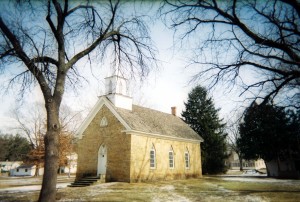 Despite threats and complaints from the ACLU, as well as a variety of naysayers nationwide, a district court judge in Oklahoma is defending his recent decision to sentence a teenage boy to ten years of church attendance.
Despite threats and complaints from the ACLU, as well as a variety of naysayers nationwide, a district court judge in Oklahoma is defending his recent decision to sentence a teenage boy to ten years of church attendance.
As previously reported, 17-year-old Tyler Alred was convicted of manslaughter this past August after he was involved in a car accident that took the life of his passenger, 16-year-old John Luke Dum. Alred had been found to be drinking that night, which was believed to have caused him to slam into a tree at approximately 4 a.m..
He stood before District Court Judge Michael Norman last week to face his sentencing.
“I did not want to do what I did,” Alred told the court. “I want to change my life.”
“The issue you have, judge, is whether we’re going to destroy two lives,” added his attorney Donn Baker. “One we can’t do anything about.”
“I usually represent outlaws and criminals,” he continued. “Judge, I think he’s worth saving.”
Instead of locking up Alred in prison or placing him in a detention center, Norman decided to do sentence Alred to ten years of church attendance. In addition, he required Alred to obtain counseling, be tested for drugs and alcohol for one year and speak at various events about the dangers of drinking and driving.
Alred and his attorney accepted the sentence.

In a recent interview about his decision, Judge Norman said that although he knew he would face opposition, he felt that he did what was right.
“Both families were satisfied with the decision,” Norman explained. “I talked to the district attorney before I passed sentence. I did what I felt like I needed to do.”
However, as he expected, others in the state have been sharply critical of the idea of sending a convict to church.
“It’s my understanding that this judge has recommended church in previous sentences, and I believe that goes too far, as well,” said Ryan Kiesel, the executive director of the Oklahoma chapter of the ACLU. “This, however, actually making it a condition of a sentence, is a clear violation of the Establishment Clause and the Free Exercise Clause of the First Amendment.”
Keisel said that the organization is currently considering their options, including challenging the matter in court.
“If the court or the district attorney attempts to enforce this requirement, we will look at possible ways to intervene,” he stated. “I know the boy agreed to this, but is someone facing a judge in open court really making a voluntary decision? Government officials should not be involved in what is a very personal choice.”
Alred’s attorney told reporters that the teen already attends church.
As for Judge Norman, he said that he continues to stand by the decision despite continued complaints and threats.
“One gentleman from Missouri left a message on my phone. He said judges can’t order people to go to church. People are calling from all around the country,” he explained. “I live in the Bible Belt, though. The Bible is still alive down here; churches are still open. I’m sure those people are right, but they’re going to have to do what they want to do.”
Although rare, several judges like Norman have been recognized in the past for sentencing convicts to church. A city judge in Bay Minette, Alabama made headlines last year when he began offering a choice between church or jail time. Other judges have been using non-Christian alternatives to doing hard time, as a city judge in Missouri says that he frequently orders convicts to perform Transcendental Meditation, a practice rooted in Hinduism.
Become a Christian News Network Supporter...


